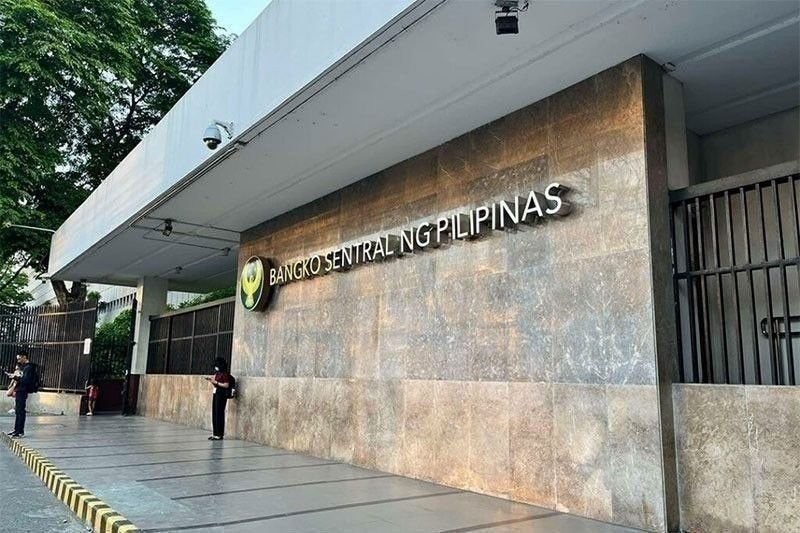September 4, 2025 | 12:00am
MANILA, Philippines — The Bankers Affiliation of the Philippines (BAP) is engaged on a central system that can permit lenders to coordinate in actual time and cease suspicious transactions, as a part of efforts to adjust to the Anti-Monetary Account Scamming Act (AFASA).
Bangko Sentral ng Pilipinas (BSP) Deputy Governor Elmore Capule stated banks have one 12 months to roll out a “coordinated verification protocol” that may allow quick blocking of funds as soon as a shopper experiences a rip-off.
“If a (sufferer) experiences, the entire system ought to be alerted. That’s the fantastic thing about it,” Capule informed reporters. “The (system) will use massive information and synthetic intelligence so every thing could be finished real-time and quick.”
The system may even characteristic a centralized database of accounts linked to fraudulent actions, making it simpler for monetary establishments to flag and block potential scam-related transfers.
Capule stated the BAP has already introduced an preliminary model to the BSP and expressed optimism that banks will meet the deadline subsequent 12 months.
On the similar time, Capule pressured that AFASA carves out an express exemption from the nation’s financial institution secrecy legal guidelines, enabling authorities to open suspicious accounts and share data throughout establishments.
“The legislation could be very express, that AFASA is an exception to financial institution secrecy,” Capule stated.
Below BSP circulars issued in July, banks with transactions exceeding P75 million over six months are required to put in enhanced fraud administration methods, together with geolocation checks, velocity monitoring and blacklisting capabilities. Smaller establishments comparable to rural and thrift banks might be topic to proportionate necessities.
Capule warned lenders that failure to conform by August subsequent 12 months may expose them not simply to regulatory penalties, but in addition to restitution claims from rip-off victims.
“If I’m scammed and it seems the financial institution will not be compliant with rules, they are going to be obliged to repay me. I don’t should go after the scammer,” Capule stated, citing provisions below the Monetary Shopper Safety Act of 2022.
BAP president Jose Teodoro “TG” Limcaoco confirmed that business discussions are ongoing.
“We like the way in which the IRR (implementing guidelines and rules) has come out… now we simply should implement it,” Limcaoco stated, including that operational particulars are nonetheless being ironed out on the Philippine Funds Administration Inc. (PPMI).
The AFASA, signed into legislation earlier this 12 months, criminalizes cash mule actions and mandates stronger fraud prevention methods within the monetary sector amid a surge in cyber-enabled scams.
In the meantime, Limcaoco, who can also be president and chief govt officer of Ayala-led Financial institution of the Philippine Islands, stated banks proceed to push for the removing of necessary credit score allocation, arguing that such necessities compromise prudent threat administration.
“Banking is about taking deposits and lending them responsibly. Once you impose necessary lending, you’re forcing us to take dangers whatever the borrower’s profile and that’s not honest to depositors,” he stated.
As a substitute of quotas, he stated the federal government ought to present incentives to encourage lending to precedence sectors, comparable to tax breaks or exemptions from documentary stamp taxes.
“You’ll be able to incentivize us, however you can not drive us. In any other case, it takes away a financial institution’s fiduciary obligation to guard folks’s cash,” Limcaoco stated.
Based mostly on BSP information, loans prolonged to micro, small and medium enterprises (MSMEs) rose within the first quarter of the 12 months however nonetheless fell in need of the mandated credit score allocation below the legislation.
Complete MSME loans grew by 15 % to P546.82 billion within the first quarter from P475.12 billion in the identical quarter final 12 months.
Regardless of the rise, banks solely put aside 4.63 % of their whole mortgage portfolio for MSMEs. That is lower than half of the ten % required below the Magna Carta for MSMEs.
The legislation requires banks to allocate eight % of their whole mortgage portfolio for micro and small enterprises and two % for medium enterprises.


